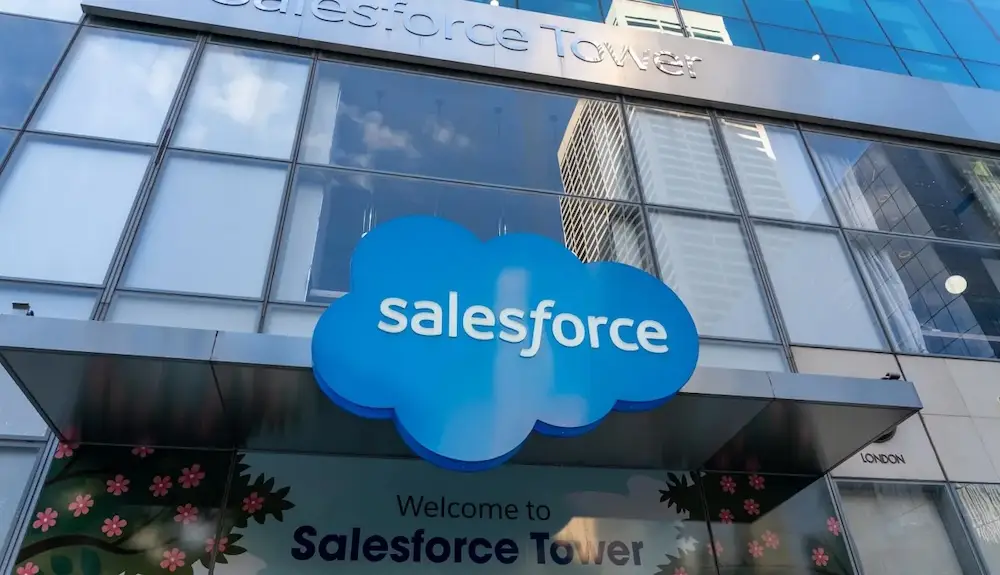In my years as an IT leader, few acquisitions have carried as much strategic weight as Salesforce’s $8 billion purchase of Informatica. This move isn’t just about scaling data capabilities. It’s a bold bet on the future of agentic AI, where autonomous systems will redefine how businesses operate. But as with any high-stakes merger, the devil is in the details. Let’s dissect what this deal means for enterprises, the AI landscape, and the delicate balance between ambition and execution.
The Strategic Rationale: Why Salesforce is Betting Big on Data
Salesforce’s acquisition of Informatica, a leader in cloud data management, aims to solve a critical bottleneck in the AI revolution: trusted data. Agentic AI systems, which autonomously execute tasks like customer service triage or supply chain optimization, require flawless data to operate reliably. Informatica’s expertise in data cataloging, governance, integration, and metadata management fills gaps in Salesforce’s ecosystem, particularly for its Agentforce AI platform.
Key Integration Goals:
- Unified Data Fabric: Combine Informatica’s Intelligent Data Management Cloud (IDMC) with Salesforce’s Data Cloud, MuleSoft, and Tableau.
- AI-Ready Metadata: Enhance AI agents’ contextual understanding of data lineage, quality, and compliance.
- Scalable Governance: Embed Informatica’s Master Data Management (MDM) to ensure AI decisions align with business rules.
Marc Benioff, Salesforce CEO, framed the acquisition as existential: “Together, we’ll create the most complete, agent-ready data platform in the industry… This is how we’ll deliver smarter, safer AI outcomes at scale.” Analysts like Wedbush’s Dan Ives echoed this optimism, calling Informatica a “gold mine of data” that positions Salesforce to dominate the $150B+ enterprise data market.
The Case For the Acquisition: Supporters’ Perspectives
1. Solving the “Garbage In, Garbage Out” AI Problem
Agentic AI’s Achilles’ heel is unreliable data. Informatica tools like Claire GPT for metadata analysis and IDMC for hybrid-cloud integration promise to sanitize and contextualize data inputs. For example, Salesforce could deploy AI agents that auto-resolve IT tickets only if they trust the underlying asset inventory data.
2. Accelerating Vertical AI Adoption
Salesforce plans to target industries like healthcare, finance, and public sector, domains where data governance is non-negotiable. Informatica’s HIPAA and GDPR-ready tools could help Salesforce certify AI agents for sensitive workflows, such as claims processing or patient triage.
3. Revenue Synergies and Market Expansion
With 5,000+ Informatica clients, Salesforce gains cross-sell opportunities. Robin Washington, Salesforce’s CFO, highlighted “$1.2 billion in cost synergies” and revenue upside in regulated sectors.
The Skeptics’ View: Risks and Challenges
1. Integration Complexity: A History of Growing Pains
Salesforce’s track record with large acquisitions (Slack, Tableau, MuleSoft) has been mixed. Critics like Gaurav Dhillon, Informatica’s co-founder, warn of a “rocky road” due to overlapping products: “Merging MuleSoft and Informatica’s integration tools could take 5+ years… and confuse customers.”
Case in Point:
Post-Slack acquisition, Salesforce struggled to unify Slack’s UI with its legacy CRM tools, leading to user frustration.
2. Valuation Concerns and Market Skepticism
Informatica’s stock had plummeted 24% YoY before the deal, and Salesforce is paying $25/share, down from 2024’s failed $40/share talks. Guggenheim’s John DiFucci notes, “Salesforce overpaid for diminishing returns… This isn’t another Tableau.”
3. Agentic AI’s Unproven ROI
While autonomous AI agents promise efficiency, early adopters report mixed results. A Fortune 500 retailer’s AI-powered inventory system mispredicted demand by 15%, causing $2M in overstock. Without flawless data, agentic AI risks amplifying errors.
Comparative Analysis: The Pros and Cons
| Aspect | Pro-Acquisition Argument | Anti-Acquisition Argument |
| Data Governance | Solves AI’s “dirty data” problem | Overlaps with MuleSoft, creating redundancy |
| Market Position | Captures $150B+ enterprise data market | High price for a company with slowing growth |
| AI Reliability | Enables safer, auditable AI agents | Unproven that data tools alone fix AI hallucination |
| Integration Risk | Salesforce has M&A experience (Slack, Tableau) | History of post-merger culture clashes and complexity |
The Road Ahead: Implications for Enterprises
For decision-makers, this acquisition signals two truths:
- Data maturity is the new competitive battleground. AI agents will fail without clean, governed data.
- Vendor lock-in risks are rising. Salesforce’s ecosystem now spans CRM, data, and AI, simplifying procurement but reducing flexibility.
Actionable Steps for Leaders:
- Audit Data Readiness: Can your AI agents trace data lineage? If not, prioritize metadata tools.
- Evaluate Vendor Strategies: Will Salesforce’s bundled AI/data stack outweigh best-of-breed alternatives?
- Pressure-Test Governance: Ensure AI agents comply with industry regulations before scaling.
Conclusion: High Risk, Higher Reward?
Salesforce’s Informatica acquisition is built on a clear premise: the future of agentic AI in the enterprise depends on robust, trustworthy data foundations. While skeptics justifiably highlight the risks of integration complexity and high costs, this deal underscores a non-negotiable truth — the success of AI initiatives is inseparable from the quality and governance of the data that powers them.
Whether this $8 billion investment delivers on its promise will hinge on Salesforce’s ability to transform Informatica’s data management expertise into AI agents that don’t just process information, but truly understand and act on it with context and reliability.
The Critical Question for Leaders
“If we deployed AI agents tomorrow, would they have the contextual data understanding to act autonomously, or would they stall at the first data inconsistency?”
If your organization has already established strong practices in data cataloging, lineage tracking, and quality control, you are well-positioned to leverage agentic AI to automate and optimize a significant portion of your workflows in the near future. This means your AI agents will have the reliable, contextual data they need to make autonomous decisions with confidence and precision.
However, if your data landscape is fragmented, lacks governance, or suffers from inconsistencies, it’s critical to prioritize improvements now. Start by piloting robust data management tools, like those from Informatica, to clean and classify your data assets. Assess how upcoming Salesforce integrations could streamline your AI and data workflows, but remain vigilant about maintaining flexibility and avoiding over-dependence on a single vendor. Most importantly, ensure your data infrastructure is adaptable and compliant with industry standards, so that as agentic AI evolves, your organization can scale its benefits safely and effectively.
Final Thought
Regardless of where you stand on the Salesforce-Informatica deal, one truth remains: your organization’s ability to harness the transformative power of agentic AI will depend on the strength, reliability, and governance of your data foundation. The future of intelligent automation and competitive advantage starts with disciplined data practices. Now is the time to act.




